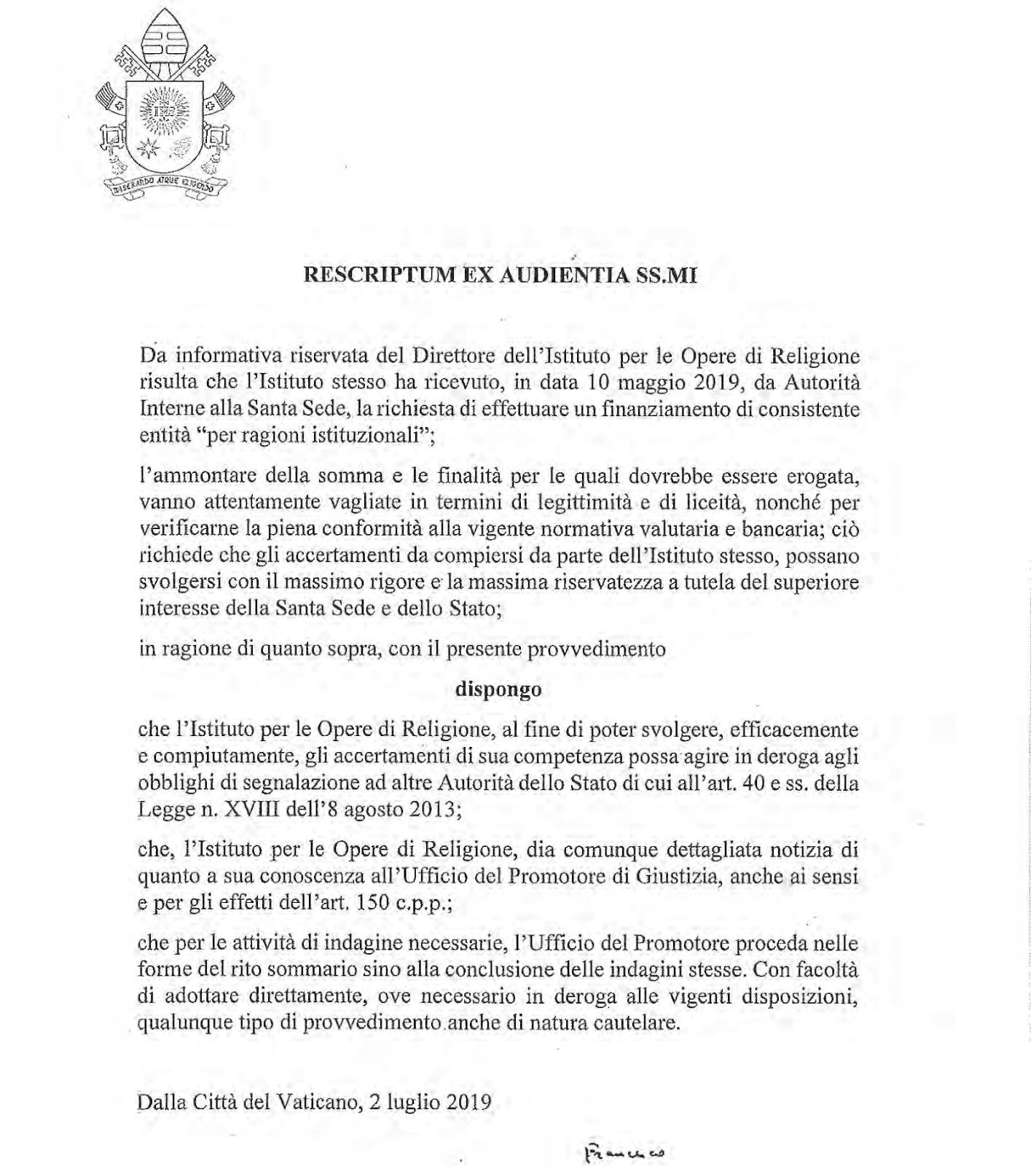(ZENIT News / Rome, 20.06.2024).- Businessman Raffaele Mincione has taken his legal battle against the Holy See and the Pope to a new level, when presenting a complaint to the office of the Special Rapporteur of the United Nations on the Independence of Judges and Lawyers. Mincione, who worked as Investments Manager of the Vatican’s Secretariat of State from 2014 to 2018, accuses the Vatican’s judicial system of violations of due process and harassment of defense lawyers in the context of a prolonged financial investigation.
The complaint, presented on June 14, lists several complaints about the handling of the case that led to the sentencing of Mincione in December of last year. The businessman was sentenced to five and a half years of prison and assets worth millions of euros were confiscated from him. Mincione and nine other accused were sentenced for financial crimes related to the purchase of a property at 60 Sloane Avenue in London.
Rodney Dixon KC, British lawyer representing Mincione, holds that the Vatican’s judicial system lacks independence, arguing that the judges are directly subordinated to the Pope, who is the Head of Government of Vatican City. Moreover, the Vatican’s attorneys are accused of harassing the defense lawyers, hindering their ability to present exculpatory evidence.
One of the most highlighted incidents in the complaint is the attempt to arrest Mincione in June 2020. According to the account, the Vatican’s attorneys organized a trap to seize him during a planned meeting. When alerted of the order of arrest, Mincione refused to attend and sent his legal team in his stead, who reported that they were followed by suspicious motorcyclists after the meeting, presumably Vatican agents.
Another crucial point of the complaint is the lack of transparency of the Vatican’s Court, which is yet to publish the full reasoning behind the convictions, despite the fact it was announced in December. This delay impedes Mincione’s lawyers from preparing an appropriate defense for the appeal hearings planned for July. The complaint argues that, without a detailed justification, it’s almost impossible to mount a coherent defense.
Pope Francis authorized the investigation against Mincione and others in 2019 through rescripts that made possible extraordinary practices, such as electronic vigilance and the renunciation of State secret protections. These measures were criticized for violating due process, although they were justified officially as necessary to investigate the financial corruption in the Secretariat of State.

If the complaint is accepted by the UN Special Rapporteur, it could unleash a diplomatic response that could affect the Vatican’s status as Permanent Observer at the United Nations. The Special Rapporteur, Margaret Satterthwaite, has the power to investigate and communicate directly with the Holy See on the alleged infractions.
The Mincione case not only calls into question the integrity of the Vatican’s judicial system, but could also have significant implications for its international reputation. The Hoy See, which paid 350 million euros for the London property and subsequently sold it with losses exceeding 100 million, now faces a double crisis: the financial and trust in its system of justice.
Thank you for reading our content. If you would like to receive ZENIT’s daily e-mail news, you can subscribe for free through this link.



